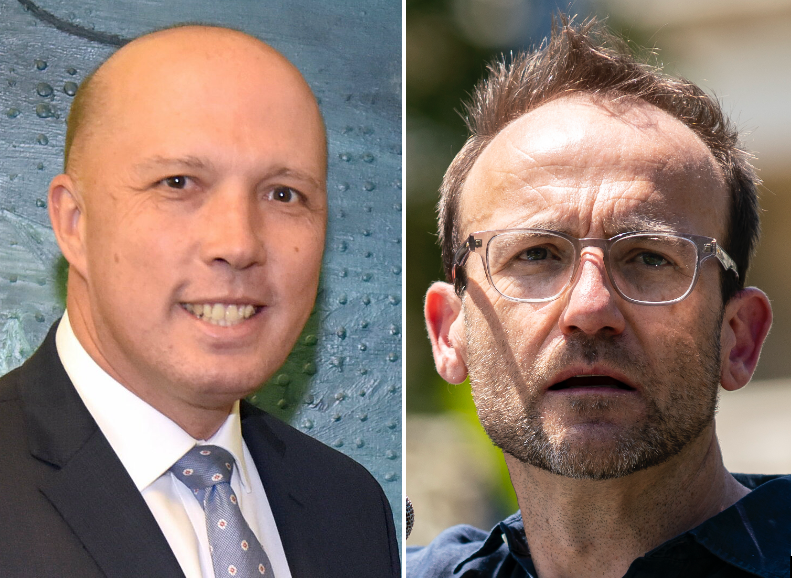A former whistleblower advocate has exposed the level of Trump's corruption in the outcome of his impeachment trial, writes Dr Kim Sawyer.
POLITICS HAS BECOME too tribal for its own good. Partisanship has come to dominate principles. There is no better example than in the trial of Donald Trump. It was not a trial. It was a Republican convention.
Truth is the first casualty of corruption. Reputation is the second. Trump has corrupted more than the Presidency. Trump has corrupted those who once stood for something.
The testament to his corruption is Senator Charles Grassley, the most senior Republican in the Senate. Grassley was known for his advocacy of whistleblowing. Now he is known for his hypocrisy.
Grassley was co-author of the False Claims Amendments Act of 1986 and author of the Whistleblower Protection Act of 1989. He was not just a legislator, he was an advocate. In 2007, he received a lifetime achievement award from the National Whistleblower Centre.
Whatever happened to Senator Grassley? Politicians are often haunted by their past. Grassley will be haunted by the future. He purged the good of his past for Trump. Why?
As a whistleblower, I have often quoted Grassley. In justifying the False Claims Act amendments, Grassley said: “They hate the Act because it is very effective at exposing their fraud.”
More recently he reflected on the need for testimony before Congress:
“Open communication is a critical function of representative government... Without it, we would have an aristocratic government that would be dominated by the executive branch.”
Grassley seemed to understand that fraud is a virus infecting government, that lies infect the way we think. He seemed to understand transparency. He seemed to understand whistleblowing.
Grassley appears to regard whistleblowers who blow the whistle on the Democrats differently from those who blow the whistle on the Republicans. The real test is whether you can blow the whistle on your own party. Grassley failed.
The impeachment of Donald Trump was a whistleblowing case. The complaint was filed on 12 August and Trump was acquitted on 5 February. In the interim, we saw the usual whistleblowing script of cover-up and retaliation.
The whistleblower followed the protection laws. Senator Grassley knew that. On 2 October, he released a statement urging the whistleblower be heard and protected. Yet he did not urge the President from trying to name the whistleblower. He was careful to separate the President from everyone else. He was conflicted between advocacy and partisanship. Partisanship won.
The conflict surfaced in the Senate trial. Senator Grassley had cast more than 13,000 votes in the Senate but this was his defining vote. He referred to the Senate as an institution guided by history. He said the choice would make history. It did. He chose to be a partisan.
Truth is the greatest asset of whistleblowers, but also their great liability. The strategy for those who cover up is to ensure the truth is not tested. The Senate trial was a cover-up in full view. The outcome was known a priori. The truth was not tested. Grassley was one of the engineers.
In his speech to acquit Trump, Senator Grassley deemed the trial open and transparent. This was a different form of transparency. He did not mention the whistleblower. He did not mention the witnesses who testified to the House. He did not mention the one witness who should have been heard. It was very different from the transparency he had long advocated.
He spoke of the need to investigate corruption but not the corruption that mattered. He accused the Democrats of hypocrisy. He accused the House of weaponising whistleblowers. He argued against a dangerous precedent but it was he who was establishing the precedent. He was projecting onto others what he failed to see in himself. He had become like Trump.
Charles Grassley was not quite as he was seen. He maintained that he opposed politicisation of the judiciary yet he helped to politicise the Supreme Court. In 2016, he refused to allow confirmation of President Obama's nominee to the Supreme Court.
Whistleblowers understand the conflict between the higher and lower path. It is a conflict of the conscience. Higher commitment requires the partisan to become impartial. The Senate trial required impartiality. Mitt Romney understood. Charles Grassley did not.
Listening to Senator Grassley, I heard what I have heard many times before. Grassley argued as opponents of whistleblowers argue. He diverted from the truth rather than commit to the truth.
Corruption inverts more than the truth. Grassley failed the Ukraine whistleblower. He failed the witnesses who supported the whistleblower. In his most important vote of all, he failed himself. He failed the test called whistleblowing.
Dr Kim Sawyer is a senior fellow in the School of Historical and Philosophical Studies at the University of Melbourne.
 This work is licensed under a Creative Commons Attribution-NonCommercial-NoDerivs 3.0 Australia License
This work is licensed under a Creative Commons Attribution-NonCommercial-NoDerivs 3.0 Australia License
Support independent journalism Subscribe to IA.












